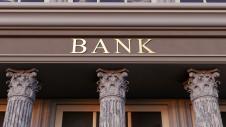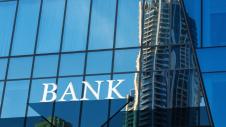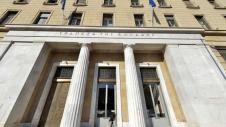The Bank of Greece (BoG) may be keeping its cards closed regarding the technical details of its proposal to create a bad bank, however, the services of the central bank are working intensively to complete the proposal with the contribution of the technical advisors.
Many expected more details on the creation of a comprehensive asset management company (AMC) for Greek lenders in last week’s Financial Stability Report, however, the report contained general references without technical details.
The BoG wants to examine in detail all aspects of the proposal, which in addition to non-performing loans, will also address the issue of deferred taxation, in order to provide answers to questions and technical details regarding its implementation, before proceeding with the publication of more information.
The BoG's proposal, as noted in the Financial Stability Report, does not aim only at providing capital relief, but also executing transactions on market terms, with the participation of private investors.These specific issues will be addressed, along with the assistance of expert consultants in coming weeks so that the proposal can be completed in the fall.
Why BoG is in favor of a bad bank
For a long time, the Bank of Greece was opposed to the creation of a bad bank, preferring to work with the ECB in implementing detailed plans to reduce non-performing loans agreed with the systemic banks.
These plans were implemented very slowly, mainly due to political conditions in the country and the choice to postpone the bad loan problem from year to year, while substantial progress was made only in the last year and a half, due to the sale of NPEs. Long before the pandemic, the ECB and the Single Supervisory Mechanism had demanded updated bank plans, pledging further efforts to cut bad loans in a shorter period of time. The supervisory pressure on domestic banks was a result of the chaotic difference between Greek banks and the EU average in terms of NPLs, a difference that did not allow the banking system to stabilize.
Pressure on the market has been intense with many investors doubting, before the onset of the pandemic, whether the bad loan reduction plans will be implemented, while questioning the capital base of domestic banks and staying away from their shares. It was this pressure that led to the emergence of unconventional solutions in the winter of 2018, such as the Hercules state guarantees plan, the BoG plan to reduce non-performing loans but also bank initiatives such as the Eurobank Acceleration Plan, initiatives aimed at offloading bad loans.
With the arrival of the pandemic, BoG governor, Yiannis Stournaras, instructed the central bank’s services, and in particular the Financial Stability Directorate and director Spyros Pantelias, to put together a new plan to free up banks from weight of NPEs and DTCs. According to sources, the BoG considers that the pandemic is preventing the implementation of bad loan reduction plans, creating fresh delays. However, there is no time left as the NPE problem has been around for nearly 10 years and the banking system - as reflected in stock prices for the last two years - cannot proceed with the next day and help the Greek economy move away from the crisis, due to uncertainty caused by non-performing loans.
The worsening of the pandemic in recent weeks, in the heart of summer, raises concerns about a very difficult winter, removing optimistic estimates for a rapid return of the global economy to growth after the shock in 2020.
However, even if the optimistic scenarios are verified and everything returns quickly to normal, the BoG considers that the bad bank should be created so that there is an additional tool to deal with the bad loan problem, just in case. The crisis caused by the pandemic creates a window of opportunity for the creation of this tool that should not be lost, according to central bank sources. Stournaras has stressed that the bad bank will support the planning of banks and be available on a voluntary basis.
Moreover, even if the securitizations planned by the banks, utilizing the guarantees of the Hercules plan, are implemented according to the planning of the banks and limited new NPEs are created due to the pandemic, the domestic banks will remain with a stock of bad loans well above the European average.
"According to calculations from Bank of Greece services", says the Financial Stability Report, "the ratio of NPLs to total loans (NPL ratio) is estimated to be around 25 percent, a percentage that is still the highest and multiple of the average of the countries of the European Union and the Single Supervisory Mechanism - SSM (2.7 percent and 3.2 percent respectively based on December 2019 data). Additionally, it is estimated that the impact on the Capital Adequacy Ratio of banks from these securitization transactions will be an average of three percentage points. It therefore becomes clear that further action is needed to reduce the existing NPL inventory."
YIANNIS PAPADOGIANNIS








